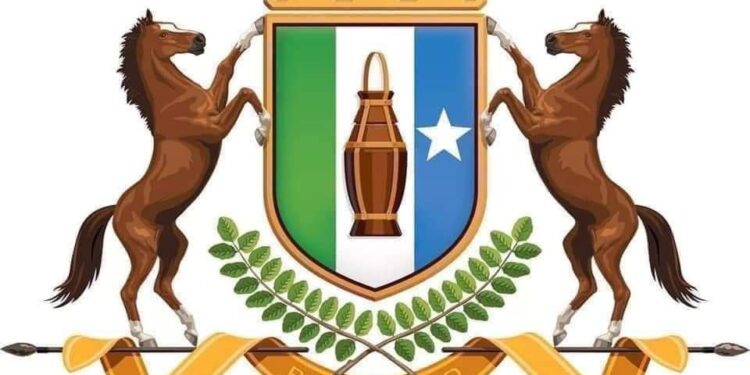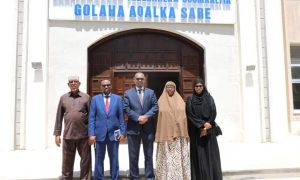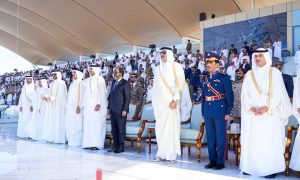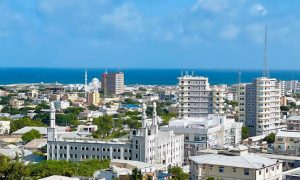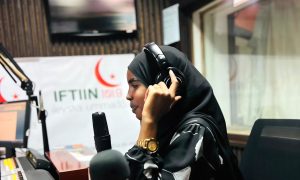
Centralism vs Federalism
Garowe, PUNTLAND – As the Puntland election nears, the region’s significance in Somalia’s federal-level politics is coming into sharper focus. Historically, Puntland has been a vital player, particularly evident during Mohamed Abdullahi Farmaajo’s presidency, where it stood as a central hub of opposition. This trend of influence has continued under President Hassan Sheikh Mohamud’s second term, beginning in May 2022. As the election on 8 January 2024 approaches, Puntland’s significance is once again highlighted by national interest groups’ involvement. National groups are investing heavily to influence the outcome in their favor, aiming to install a leader who will align with their broader political ambitions. This election is therefore not just about choosing a regional leader; it’s about shaping the future of Somalia’s political landscape.
Concerns Over Puntland’s Autonomy
The centralism debate in Somali politics has been reignited by the current dynamics of the Puntland elections. Critics are concerned that electing candidates closely aligned with Mogadishu’s federal government could undermine Puntland’s historical autonomy. There is a growing fear that Puntland might lose its distinct political identity and influence, transforming into a Mogadishu-facing Federal Member State (FMS), akin to those in southern Somalia. This potential shift could signify a dilution of Puntland’s power and prestige, historically marked by its independent policies and political thought.
The possible shift towards centralism in Puntland raises significant questions about the future of Somali federalism. Centralism, characterized by a concentration of political power and decision-making at the federal level, could lead to a reduction in the autonomy and influence of individual FMSs. Critics argue that this could result in a homogenization of policies and diminish the unique contributions of regions like Puntland to the national political discourse. Such a change might limit Puntland’s ability to advocate for its specific interests and maintain its role as a balancing force in Somali politics.
Nabad and Nolol Coalition’s Strategic Play
The Nabad and Nolol coalition, led by former President Mohamed Abdullahi Farmaajo, is demonstrating its strategic acumen in the Puntland elections. Their significant investment in this crucial political event, particularly their support for Guled Salah, signals a deliberate attempt to influence Puntland’s political future. Guled, a former leader within the Transitional Puntland Electoral Commission (TPEC), is known for his educational background in Sudan and previous affiliations with the Dam Jadiid group. His current alignment with the N&N coalition places him at the center of this political chess game.
Guled Salah’s candidacy is not just about securing a win in Puntland; it’s about the long-term political game plan of the N&N coalition. His election as the President of Puntland would extend N&N’s influence far beyond the regional borders. In Garowe, N&N operatives are reportedly pouring in financial resources and strategic support to enhance Guled’s chances of victory. This move is a clear indication of the coalition’s intent to secure an ally in Puntland who could play a pivotal role in the upcoming federal elections.
Should Guled Salah succeed in securing the presidency of Puntland, the implications for Somali federal politics would be significant. His leadership in Puntland could facilitate the election of federal MPs who are politically aligned with N&N in 2026, thereby strengthening the coalition’s grip on national politics. This potential scenario therefore underscores the importance of Puntland’s upcoming election, not only for the region itself but for the broader political landscape of Somalia. The N&N coalition’s focused efforts in Puntland reflect a keen awareness of the strategic weight this election holds in shaping Somalia’s future political direction.
Villa Somalia’s Calculated Support
Villa Somalia, under the current influence of the Dam Jadiid faction, is employing a calculated hedging strategy in the Puntland elections. This approach involves supporting not one but two candidates: Abshir Huruuse, the former foreign minister, and Hassan Shire Abgal, a prominent member of the Aran Jaan group. Both individuals have a history of supporting the election of Hassan Sheikh Mohamud, which positions them as potentially reliable allies for his administration.
Moreover, supporting both Huruuse and Abgal represents a strategic move by Villa Somalia to ensure that one of their preferred candidates secures the presidency in Puntland. The dual candidacy approach therefore enhances the likelihood of electing a pro-Villa Somalia leader in Puntland, potentially playing a crucial role in Hassan Sheikh Mohamud’s potential reelection bid in 2026. The support for these candidates indicates Villa Somalia’s intent to maintain and strengthen its influence within the region. This scenario underscores the importance of Puntland’s election and politics not just for the region, but also for the shaping of Somalia’s federal political landscape.
Puntland’s Stance on Federalism Under Said Abdullahi Deni
Under the leadership of President Said Abdullahi Deni, Puntland has continued to uphold its semi-autonomous status within the Somali federal framework. The Deni administration has consistently emphasized the importance of Puntland acting independently until there is a clear agreement on political power sharing and resource allocation with the central government. This approach reflects Puntland’s commitment to a strong federal system.
Puntland’s vision for federalism under President Deni advocates for significant autonomy for FMSs. This perspective aligns with the belief that a robust federal system is essential for Somalia’s stability and development. Puntland argues that such a system allows for tailored governance approaches that cater to the unique needs and contexts of each FMS, fostering a sense of ownership and responsibility. The Deni administration maintains that FMSs like Puntland must have substantial control over their internal affairs to achieve effective federalism, thereby ensuring that their voices are heard and respected in the broader national dialogue.Consequently, the politics and position taken by Puntland under President Deni have substantial implications for the federal dynamics in Somalia. Puntland’s insistence on autonomy and its advocacy for a strong federal structure challenge the central government to strike a balance between national cohesion and regional independence. This approach sets a precedent for how federalism can be operationalized in Somalia, potentially influencing how other FMSs interact with the central government. As Somalia continues to evolve politically, the model of federalism advocated by Puntland under Deni’s leadership will likely play a crucial role in shaping the country’s governance structure and the relationship between the central government and FMSs.
The Way Forward for Puntland and Somalia
As Puntland approaches its critical elections, the region stands at a significant crossroads in Somali politics. The leadership choices made in this election will resonate far beyond Puntland’s borders, influencing the region’s political independence and autonomy. These decisions will not only shape Puntland’s future but also impact the dynamics of federalism across Somalia. The outcome of these elections therefore holds the potential to either reinforce or redefine Puntland’s role in the national political arena.
In conclusion, the decisions made by Puntland in the upcoming elections will be instrumental in charting the course for Somalia’s federal landscape. The selection of its leaders carries implications for the balance of power within the Somali federation, affecting how regional autonomy and central governance interact. As Puntland navigates these complex political dynamics, its actions will significantly influence the trajectory of Somalia’s journey towards a stable and effective federal governance system.
________________________________________________________________
Sources: Garowe Online
________________________________________________________________
Xafiiska Wararka Qaranimo Online | Mogadishu, Somalia
_____________________________________________________________________________________Xafiiska Wararka Qaranimo Online | Mogadishu, Somalia
_____________________________________________________________________________________Advertisement
_____________________________________________________________________________________


